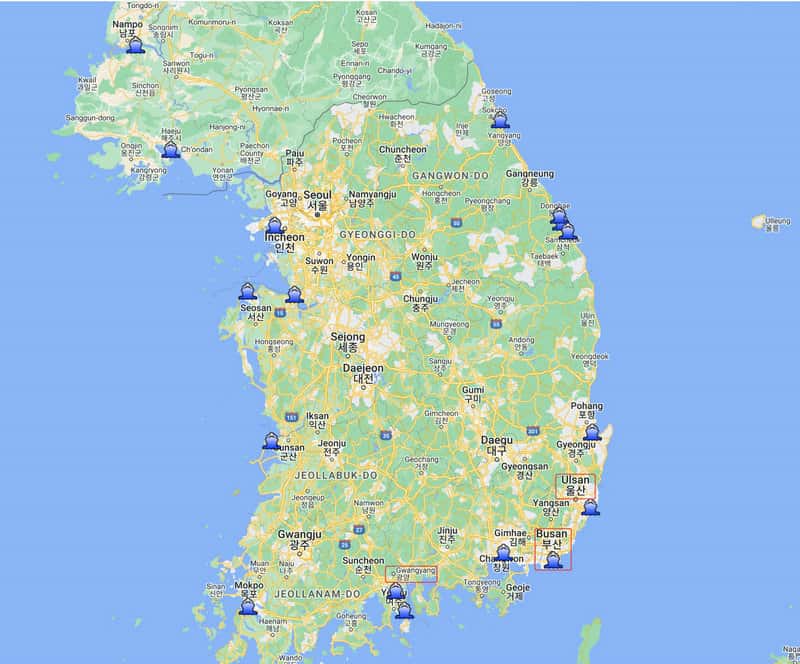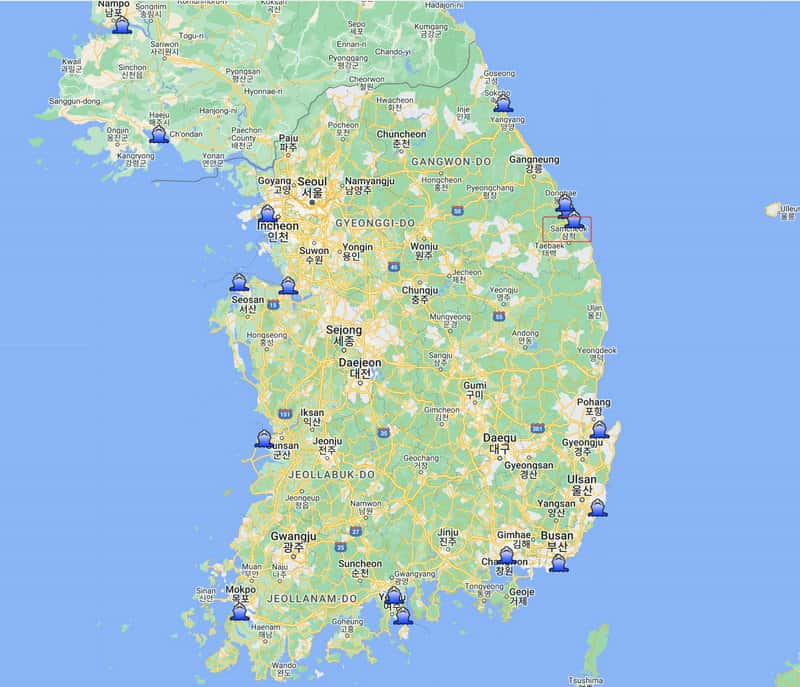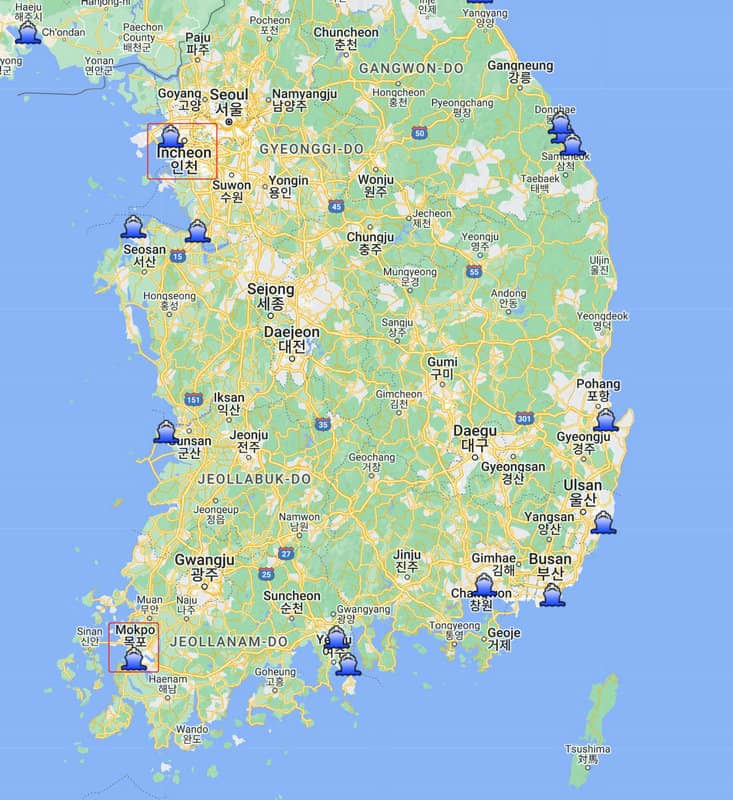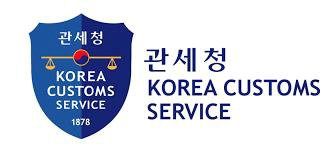Understanding Shipping from China to South Korea

When you’re looking at transporting goods from China to South Korea, it’s important to understand the shipping routes and ports that will impact your freight’s journey. The efficiency of your shipping process largely depends on the appropriate routes, the weather, and customs clearance. In terms of shipping from China to Korea, two main shipping methods are highly recommended: sea freight and air freight.
Sea Freight
The most common method for international shipping is sea freight, with major Chinese ports like Shanghai, Ningbo, Qingdao, Tianjin, and Guangzhou serving as key dispatch points. Your cargo can be transported in either Full Container Load (FCL) or Less than Container Load (LCL) to South Korean ports such as Busan, Incheon, and Pyeongtaek.
FCL is ideal if you have enough merchandise to fill an entire container.
LCL is suitable for smaller shipments where you pay for the space your goods occupy within a shared container.
It’s imperative to understand the documentation required for sea freight, including the bill of lading, packing list, and insurance certificate. The transit time can vary but is generally around a couple of weeks, influenced by the distance and specific shipping routes used.
Air Freight
For more urgent deliveries, air freight is the faster option. Cargo flights frequently operate between major Chinese airports, such as Shenzhen and Chengdu Shuangliu International Airport, and the Incheon International Airport in South Korea. While more costly, air shipping provides reduced transit times, often as quick as 24 to 72 hours.
Door-to-door and express shipping options are also available for both sea and air freight to enhance convenience and speed. When using freight services, it is crucial to be clear about your needs in terms of volume, dimensions, and transit time.
Sea Freight to South Korea
When shipping from China to South Korea, selecting the right sea freight ports on both ends is crucial for efficiency and cost-effectiveness. Your understanding of the major ports and their functionalities, as well as transit times and shipping rates, can influence your decision-making process.
Major Ports of the South Coast

Busan:
- As South Korea’s largest port and the fifth busiest in the world, Busan is a hub for international trade and sea freight.
- Its location on the southeast tip of the peninsula makes it ideal for shipments coming from Chinese eastern ports like Shanghai and Qingdao.
Gwangyang:
- This port, situated further south of the peninsula, also handles a substantial amount of cargo.
- Gwangyang’s modern facilities cater to a range of freight types, from bulk cargo to containers and pallets.
Ulsan
- Ulsan is a major industrial port located in the southeastern part of South Korea. It neighbors the port of Busan.
- The port specializes in imports of petroleum and other bulk shipments to supply the nearby industrial region and oil refineries.
Major Ports of the East Coast

Samcheok
Samcheok is a coastal city in Gangwon Province, South Korea, with a small commercial port called Samcheok Port.
The port primarily handles cargo shipments of cement and other industrial goods produced in the region.
Cargo Handling: Samcheok Port has basic wharf facilities and handles general cargo, bulk cargo, and some container traffic.
However, it is a relatively minor port compared to major hubs like Busan, Incheon, and Gwangyang in terms of cargo throughput.
Major Ports of the West Coast

Incheon: Near the capital, Seoul, Incheon is renowned for its accessibility and effectiveness in processing cargo. It serves as a central gateway for shipments originating from the ports on China’s eastern coast, as well as door-to-door deliveries within the region.
Pyeongtaek: Serving as a key logistical point for the West Coast, Pyeongtaek is an excellent choice for those looking for competitive rates and reliable service when shipping to the industrial regions of South Korea.
Mokpo: Mokpo Port is located in the city of Mokpo in South Jeolla Province at the southwestern tip of the Korean Peninsula. It serves as a gateway to the Honam region, the largest granary in South Korea.
Sea Freight Transit Times
The following table details the common transit times for shipping from China to Korea:
| Ningbo | Shanghai | Tianjin | Qingdao | ||
| South Coast | Busan | 4 days | 4 days | 4 days | 5 days |
| Guangyang | 4 days | 4 days | 4 days | 5 days | |
| Ulsan | 5 days | 5 days | 4 days | 5 days | |
| East Coast | Samcheok | 5 days | 5 days | 5 days | 6 days |
| West Coast | Incheon | 5 days | 5 days | 3 days | 4 days |
| Pyeongtaek | 5 days | 5 days | 3 days | 4 days | |
| Mokpo | 4 days | 4 days | 4 days | 4 days |
*Please note that the above transit times are just estimated timing for shipping from China to Korea. For more transit times from different ports, please contact us!
Sea Freight Rates
Transit times and freight costs are greatly low between China and Korea. Therefore, sea freight will be the best freight solution for your cargo transfer.
Also, sea freight rates are influenced by a variety of factors, including the size and weight of pallets or cargo, seasonal demands, and the type of service (standard or expedited). To get the best shipping rates, compare quotes from Luckystar Logistics, consider off-peak times, and consolidate shipments when possible. Obtaining an instant quote can provide clarity on the costs associated with shipping your freight by sea to South Korea.
Air Freight To South Korea
Major Airports in China for Cargo to South Korea
The main airports in China that handle cargo flights to South Korea include:
– Shanghai Pudong International Airport (PVG)
– Beijing Capital International Airport (PEK)
– Guangzhou Baiyun International Airport (CAN)
– Chengdu Shuangliu International Airport (CTU)
– Shenzhen Bao’an International Airport (SZX)
These are some of the biggest cargo airports in China, well-connected to major South Korean airports like Incheon (ICN) through multiple daily cargo flights operated by airlines like Air China, China Southern, Korean Air, Asiana Airlines, and more.
Major Airport in South Korea for Cargo from China
The primary airport in South Korea receiving cargo from China is:
– Incheon International Airport (ICN)
Incheon Airport is a major cargo hub in Northeast Asia, handling the second-largest volume of international air freight globally. As of 2022, it had cargo routes connected to 20 cities in China through 25 airlines.
Other airports like Gimpo (GMP), Gimhae (PUS), and Yangyang (YNY) also receive some cargo traffic from China but at a much smaller scale compared to Incheon.
Air Freight Transit Times
The typical air freight transit time from major airports in eastern China like Shanghai, Beijing, and Guangzhou to Incheon is around 2-3 days for direct flights. Cargo consolidation, customs clearance, etc., can add 1-2 more days.
Express air freight services can deliver door-to-door within 3 days, while standard air freight may take around 5-7 days from supplier to destination in South Korea.
Air Freight Rates
Your air freight costs are influenced by various factors, such as cargo weight, volume, and service options chosen. While air freight may be pricier than ocean shipping, the benefit of speed and efficiency could outweigh the cost for your urgent shipments. Please contact us for quotes to ensure you receive the most competitive rates. Rates for air freight are typically calculated by either actual weight or volumetric weight, depending on which is greater.
- Actual Weight: Directly correlates with the cargo’s physical weight.
- Volumetric Weight: Calculated with the formula (length x width x height in CBM).
The air freight cost from eastern China to South Korea ranges from $2-5 per kg depending on the airline, service type, dimensions of the cargo, etc. To obtain accurate pricing, it’s recommended that you provide detailed information about your shipment. This will allow you to budget accordingly and select the service level that meets your shipping from China to South Korea requirements.
Necessary Documentation
When shipping from China to Korea, specific documents are essential to ensure smooth customs clearance. As an exporter or importer, you’re required to prepare and present these documents accurately.
Bill of Lading or Airway Bill (BL)
Bill of Lading (BL) or Airway Bill is the contract between you, the shipper, and the carrier. This document serves as a receipt of goods and contains critical details such as destination, consignee, and description of the cargo.
Packing List
The packing list details everything in the shipment, helping customs officials verify the cargo. It should match the contents of your shipment precisely and include information like weights, dimensions, and packaging types.
Valid Declaration Form
For every shipment, a completed Single Administrative Document is necessary. This declaration document is written to customs and serves to declare the nature, quantity, and movement of goods.
Certificate of Origin (CO)
Certificate of Origin is a document that certifies the country where the goods were manufactured. The CO is crucial for determining whether your goods are eligible for import based on trade agreements and tariffs.
Other Documents
Commercial Invoice
Export And Import License
Proforma Invoice
Shipping Bill
Consular Invoice
Bill Of Lading
Bill Of Entry
Cargo Insurance
Duties And Taxes In South Korea
Import Duties
– South Korea has an average import duty rate of around 8%, though rates vary by product category. Higher rates apply to items like seafood, clothing, and tobacco products.
– Under the Korea-China Free Trade Agreement (FTA) that came into effect in 2015, many products traded between the two countries are eligible for zero or reduced import duties.
– The specific duty rates depend on whether the product is classified under the normal track (zero duty), sensitive list (duties reduced gradually), or highly sensitive list (duties remain) under the FTA.
– Import duties are calculated on the CIF (cost, insurance, freight) value of the goods.
Value Added Tax (VAT)
– South Korea levies a flat 10% Value Added Tax (VAT) on all imported goods as well as domestically produced goods and services.
– The VAT is calculated on the CIF value of the imported goods plus any applicable duties.
Other Taxes
– A special excise tax of 10-20% is levied on the import of certain luxury and durable consumer goods like automobiles.
– Alcohol imports are subject to a liquor tax, e.g. 72% tax per liter for beer.
Duty Exemptions
– Goods valued at $150 or less received by a domestic resident for personal use are exempt from duties.
– Samples valued at $250 or less and promotional materials are also exempt from duties.
– Certified foreign enterprises can be exempt from VAT and excise taxes on imported capital goods used by the company.
Contact Customs
When shipping from China to South Korea, understanding the customs formalities, such as regulations and customs clearance processes, is crucial for a smooth transaction. You’ll need to engage with customs authorities in both China and Korea to ensure compliance and avoid delays.
Customs Contact in China

Official name: General Administration of Customs, P.R. China
Website: Contact Chinese Customs
Customs Contact in Korea

Official name: Korean Customs Service
Website: Contact Korean Customs
Prohibited & Restricted Items
When shipping from China to Korea, you need to be fully aware of items that you are not allowed to transport. Both nations have stringent regulations on certain materials that could pose legal, environmental, or security threats. Here, we’ll guide you through the items that are either strictly prohibited or subject to certain restrictions, whether you’re using sea freight or air freight services:
- Drug Contraband
- Explosives
- Biohazard
- Chemicals
- Corrosive
- Counterfeit
- Ivory
- Batteries
- Flammable
- Firearms
- Drugs
- Counterfeit Notes
- Poison
- Pornography
- Knife
- Tobacco
- Gambling
- Hazardous
About Us
Luckystar Logistics is an experienced freight forwarder, providing trusted shipping services to customers in China, the United States, Canada, and Europe at competitive prices.
With over 20 years of combined experience in logistics, our dedicated team is equipped to handle all your international transportation needs. We specialize in reliable and flexible door-to-door freight shipping by air, sea, or road, ensuring on-time delivery across the globe.
Throughout our years of operation, we have served a wide range of clients, including small businesses, multinational corporations, and industries such as manufacturing, retail, and e-commerce. Our commitment to providing exceptional service has earned us long-term partnerships and customer satisfaction.
Our Vission
To become the leading logistics provider by consistently delivering innovative solutions and exceeding customer expectations.
Our Mission
Our mission is to streamline supply chain operations, adapt to industry changes, and help our clients grow their businesses by providing end-to-end shipping services, exceptional customer service, and value creation.
